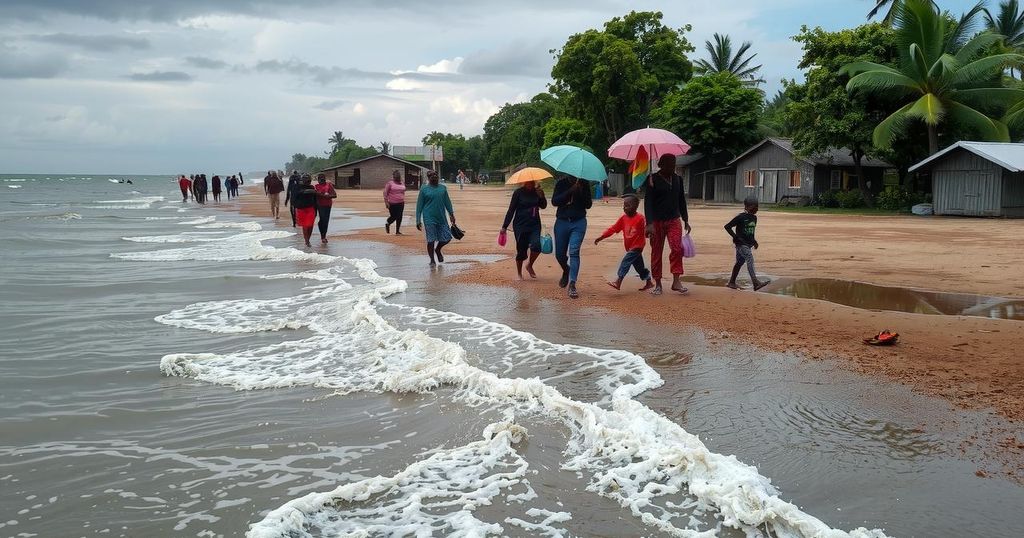Following the disputed presidential elections in Mozambique on October 9, escalating violence has caused thousands to flee to Malawi, with over 2,000 households reported to have crossed the border. Protests against the election results have led to 248 deaths. The political crisis is fueled by allegations of vote rigging, and the opposition leader, Venancio Mondlane, is calling for further demonstrations and plans to assert himself as president.
The political climate in Mozambique has descended into chaos following disputed presidential elections held on October 9, prompting a mass exodus of citizens seeking refuge in neighboring Malawi. Officials report that approximately 2,000 households have crossed the border amid violent protests that have led to 248 reported deaths, including casualties from a recent prison break. The protests emerged after the ruling Mozambique Liberation Front (Frelimo) declared Daniel Chapo the election winner amidst allegations of vote rigging. Many involve themselves in the increasing unrest, as an opposition leader in exile, Venancio Mondlane, continues to challenge the election results, reinforcing calls for demonstrations.
The unrest in Mozambique traces back to the recent presidential elections, which have been marked by significant controversy. Daniel Chapo of the ruling party has been declared the victor, but this has been met with fierce opposition from Venancio Mondlane, who contends that the elections were marred by fraud. The ensuing violence has led to tragic loss of life and has forced many citizens to flee their homes in search of safety in Malawi, thereby exacerbating the humanitarian crisis in the region.
In summary, the violent aftermath of the contested presidential elections in Mozambique has triggered a humanitarian crisis, compelling thousands to flee to Malawi. The ongoing unrest highlights the political divides in the country and raises significant concerns about the safety and security of citizens amidst allegations of electoral misconduct. As the situation evolves, the international community will need to monitor developments closely to advocate for peace and stability in the region.
Original Source: www.aa.com.tr






